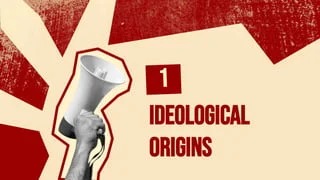Communism, once a dominant ideology shaping the political landscape of the 20th century, continues to evolve in the 21st century amidst a backdrop of global economic shifts and social transformations. While its historical manifestations, notably in the Soviet Union and Maoist China, have often been associated with centralized control, economic collectivization, and authoritarian regimes, modern communism emerges with new interpretations and applications that reflect contemporary realities and aspirations.
KEY TAKEAWAYS- Modern Communism
- Communism is an economic ideology that advocates for a classless society in which all property and wealth are communally owned instead of being owned by individuals.
- Visions of a society that may be considered communist appeared as long ago as the 4th Century BCE.
- Modern communist ideology began to develop during the French Revolution and its seminal tract, Karl Marx and Friedrich Engels’ “Communist Manifesto,” was published in 1848.
- Communism was pitted against capitalism, which relies on democracy and the production of capital to form a society.
- Prominent examples of communism were the Soviet Union and China. The Soviet Union collapsed in 1991 but China has drastically revised its economy to include some capitalism.

Revisiting Ideological Foundations
At its core, communism espouses the collective ownership of resources and the elimination of class distinctions, aiming to create a society where wealth and power are distributed equitably among all members. However, the failures and abuses witnessed in past communist experiments have prompted modern thinkers to reconsider and refine these principles.
Today, proponents of modern communism advocate for a more decentralized approach, emphasizing participatory democracy, grassroots organizing, and voluntary cooperation over top-down state control. This evolution acknowledges the importance of individual liberties and diversity while striving for economic justice and social equality.
Economic Models and Sustainability -Modern Communism
In contrast to traditional command economies, modern communism explores hybrid models that blend communal ownership with market mechanisms. Examples include worker cooperatives, where employees collectively manage and benefit from their enterprises, and community land trusts, which promote shared ownership of land and housing.
Moreover, environmental sustainability has become a central concern within modern communist discourse. Recognizing the ecological consequences of unrestrained capitalism, many advocate for eco-socialism—a synthesis of environmentalism and socialism—to address issues such as climate change, resource depletion, and ecological degradation.
Social Justice and Cultural Identity
Beyond economic restructuring, modern communism encompasses a broad spectrum of social justice movements, advocating for gender equality, racial justice, LGBTQ+ rights, and indigenous sovereignty. This intersectional approach seeks to dismantle all forms of oppression and discrimination, acknowledging that economic liberation is intertwined with social and cultural emancipation.
Challenges and Criticisms – Modern Communism
Despite its evolving forms and ideals, modern communism faces significant challenges and criticisms. Critics argue that it remains utopian and impractical, questioning its ability to effectively allocate resources and incentivize innovation without market mechanisms. Moreover, concerns about authoritarian tendencies persist, as some fear that concentrated power—even in decentralized forms—could lead to repression and abuse.
Conclusion: Toward a New Vision
In conclusion, modern communism represents a dynamic and evolving ideology that seeks to address contemporary global challenges while learning from the lessons of history. By embracing decentralization, sustainability, social justice, and cultural diversity, it offers a compelling vision for a more equitable and inclusive society.
While the road ahead is fraught with challenges and uncertainties, the principles of modern communism continue to inspire debates, experiments, and social movements worldwide. Whether through grassroots organizing, policy advocacy, or academic discourse, its proponents strive to forge a path toward a future where economic democracy and social justice prevail.
As we navigate the complexities of the 21st century, the evolution of communism serves as a testament to humanity’s enduring quest for a fairer and more compassionate world.
Royale Group Holiday Membership , Writer , How to start a Business , Aakash Shrivastav
